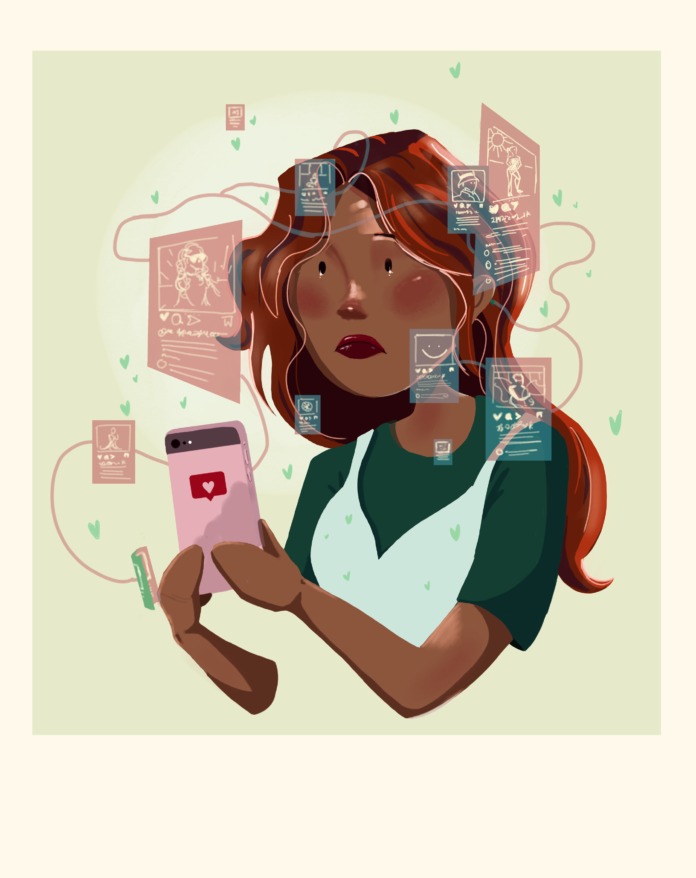Celebrities no longer exist. Well, they do, except they now wear the title “influencer.” As someone who has lived to see the rise and fall of YouTube legends, deleted Vine accounts, and now blooming TikTok stars, I can happily say I would never want to become an influencer. In all honesty, I can’t imagine being verified on these apps. My room isn’t aesthetically pleasing enough to film in, and I don’t know what angle looks best while making a sobbing apology video.
Content creators have been told for years to be more genuine online, mainly for the sake of their brand. We look at these people and think “hey, that could be me!” or, “wow this person is my new best friend.” Although the difference is that when a friend in real life needs help we try our best to comfort and to be there for them. When an influencer needs help the best we, as followers, can do is boost their like count so they end up on more people’s “For You” pages.
Recently a new type of creator has been ushered into the online world; this is the age of vulnerable influencers. These are people that express themselves and their feelings with more honesty than audiences are used to, and while this should be embraced, there are those still on the fence about it. These kinds of influencers are more truthful about what happens behind the scenes, specifically touching on how mentally draining life (and creating) can be.
Mandy Liddle, a local influencer based in the Fraser Valley, is one of those who has posted candidly about her life. Her TikTok account, @mandy.liddle, which has nearly 30k followers and over 1 million likes, features content that covers a range of topics, including her struggles with mental health.
“I feel like I have a duty in a way to be a little more genuine about how I’m feeling, mental health-wise,” said Liddle. “It’s so funny that we build up this little world in our head and on our phones of everything being curated and perfect when it’s not. That’s why it’s important to me. So I just feel like it’s so important for people to be as genuine as they can be online and without crossing any boundaries for themselves.”
The idea of boundaries when it comes to social media should be common sense, but surprisingly it isn’t for a lot of people. With tens of thousands of TikTok followers, Liddle has learned a bit about setting boundaries with her audience.
“I feel like as I get older, I learn to set boundaries. I am a bit of an oversharer. I used to be at times, and I think I’m getting a lot better about it,” said Liddle. “The whole oversharing thing, it’s a hard line to cross sometimes, you know, what is oversharing to a degree. Does it even exist? People feel entitled to your feelings and your life. I can choose how I share it.”
As a viewer, the biggest difference talking about mental health online versus in real life is that there is a sense of protection behind the screen, but do influencers feel the same way? Liddle gave her thoughts on the matter when it came to how different the two are.
“It’s hard because I feel like online, in a way, I feel more open to sharing stuff like that. You’re putting yourself, in a sense, way more out there [online] and you’re open to literally anybody commenting on anything.”
Liddle also sees how viewers feel about the uptick of honesty with mental health struggles being posted online by content creators. She takes into account how many people see influencers as faking it, or even judge them for sharing these thoughts. Despite this, she remains optimistic about the upsides of being raw online, but is also cautious about how it could potentially become something trendy.
“I think it does help to open that door, but then I think, you know, that’s also at the cost of the person who is pouring their heart out … When I’m consuming media from other people I benefit a lot more from people who are real. I think it’s very give and take.”
These words left a certain writer to reflect. Perhaps for every ten influencers faking their raw online persona, there is one that is genuine and truly trying to build a supportive community. These content creators do not need to be our new best friends, but maybe they don’t want to be.
Follow Mandy on Instagram @mandyyyliddle and on TikTok @mandy.liddle
Eva Davey is a UFV student majoring in English Literature and minoring in Media Communications. She is a fan of poetry, oat milk lattes, and the final girl trope. Currently, her worst enemy is the Good Reads app.



